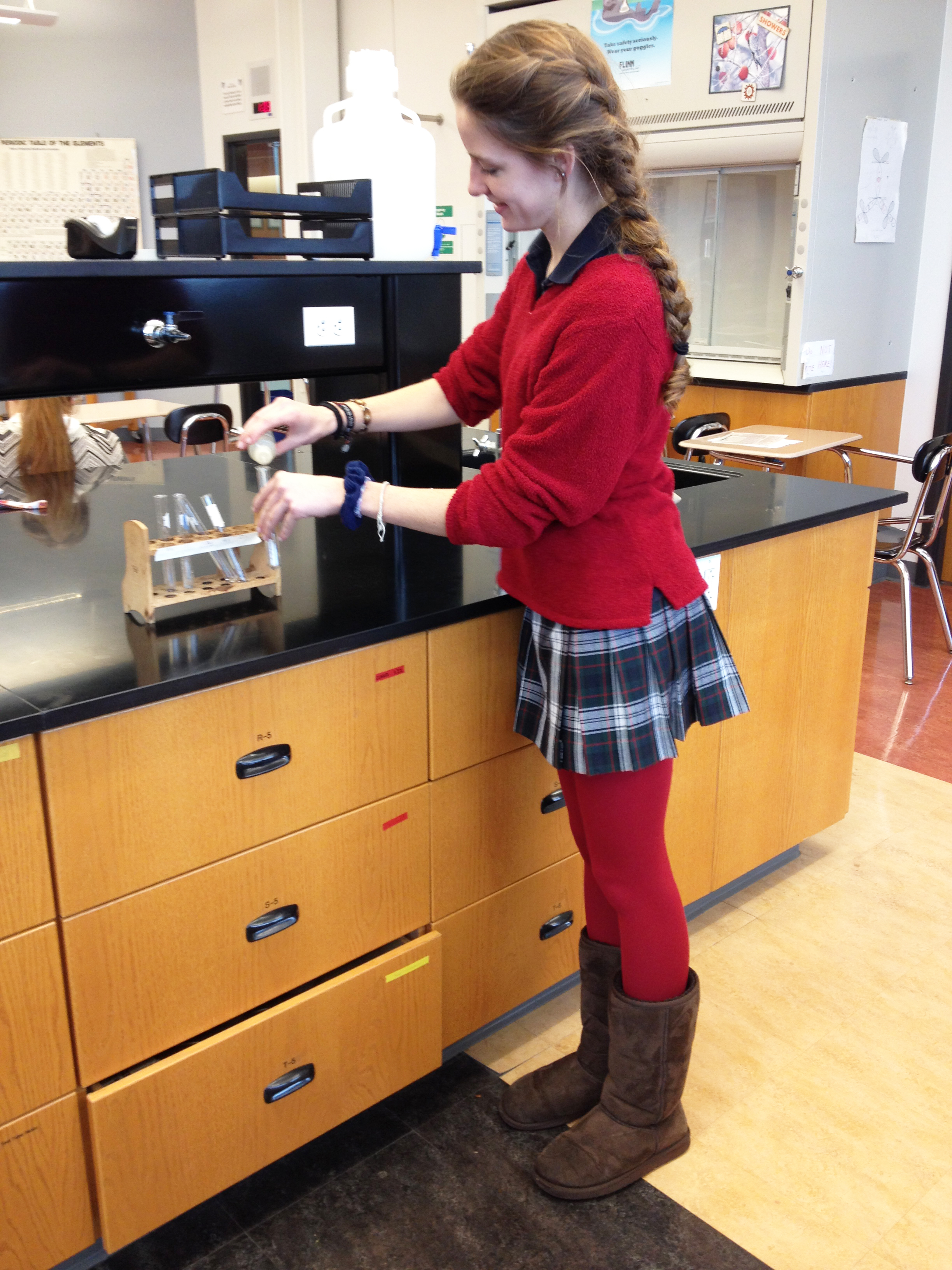Audrey Lee ’17: Free blocks are easily the highlight of any student’s day. When a class drops or simply is not scheduled students have a full period to get work done or just to have extra time, a break in the school day to kick back from a hectic schedule and relax. Every class drops for a free at least once in the twelve-day cycle, making for eleven full classes in a single rotation, except for one. However, science coursea from third through sixth forms meet on a daily basis, plus an extra double-class period twice every twelve days, making for a total of fourteen science classes in a single rotation.
Feelings about whether or not science should drop, or lose a double period vary in opinion among students greatly based on their interest of the course. On one hand, science is an important topic to emphasize in an education. According to Daniel Lippman of The Wall Street Journal, two out of the six job fields expected to grow the most in the next decade, health care and technology services, are both heavily connected to science and its frequent counterpart, mathematics. Having a total of three more science classes per twelve day rotation also provides opportunity for timely labs and experiments. However, having an overwhelming amount of science can limit time for other classes and schoolwork.
Science is a staple class at any school. The Student Handbook states that, over the course of Upper School, a minimum of three credits in science must be earned for graduation, in biology, chemistry, and physics, with the option to take an AP or honors subject in senior year. With an entire science center built for the Middle and Upper Schools outfitted with state-of-the-art classrooms and equipment, a simple look around campus can assure that science is not a subject taken lightly at Episcopal. In a day and age where job demand is in health care and computer sciences a college degree in either of these starts with thorough and complete knowledge gained throughout grade school.
On the other hand, by the numbers, the average science class meets 168 times for a total of 6,720 minutes every year, compared it to a class that meets eleven out of every twelve days with 132 total classes and 5,280 combined minutes. Students can feel the pinch from the extra time: having more classes generates more homework, filling already packed schedules that still have other work to get done. The lack of a drop day can also limit free time.

Photo courtesy of Julia Thompson ’16
Gossen Yang ’17 stated, “We already receive a lot of homework, and exchanging a drop period just to receive yet more homework just seems like a bad idea. Some of us rarely have any free periods, and I feel that they would greatly appreciate it if two more were added to the cycle.” Putting extreme emphasis on science still takes away from other classes, too: due to the double-science blocks that are scheduled twice per rotation, the class that is being taken up by that extra period drops twice, taking away from its place in students’ schedules.
“I won’t argue that science is more important than the other subjects, because I don’t think it is,” declared Matthew Shapiro, member of the Science Department. While future careers can be determined by current success and emphasis on curriculum, students also need time to get work done and focus on other courses, especially at a school that is already academically rigorous and challenging. “I believe we should drop [science] like other classes, and the double block is enough.” says Felicia Zhu ’17.
Katie Foster ’17, sums up the most logical solution that would even out course load while still putting emphasis on science: “I think we should have double [science] but we should drop one day in the cycle.”